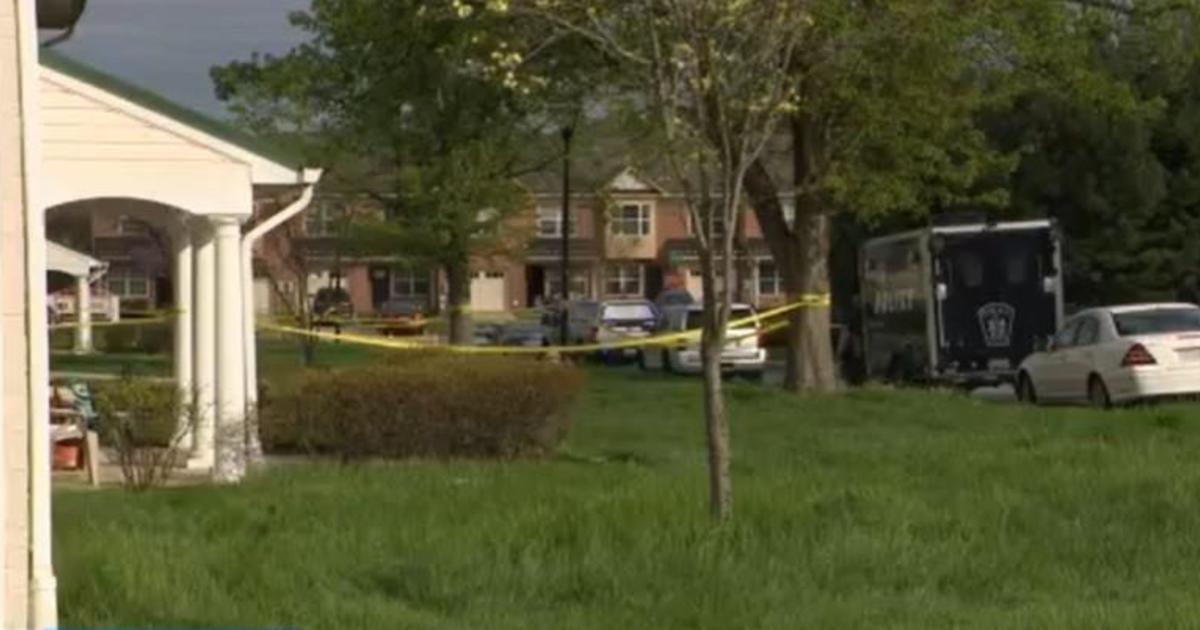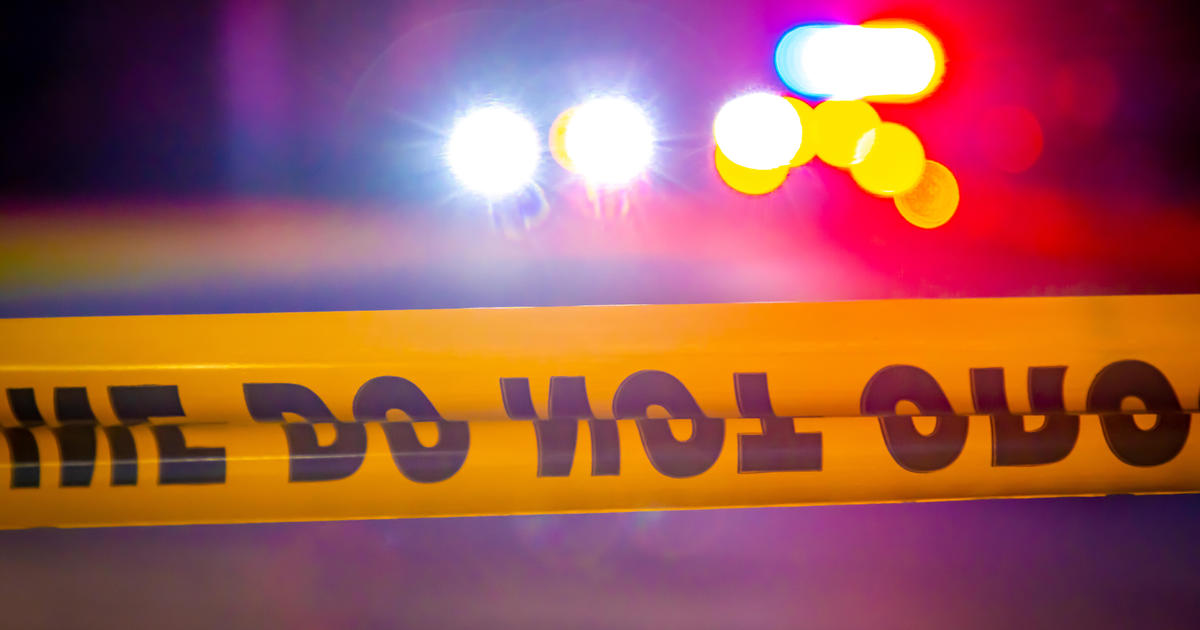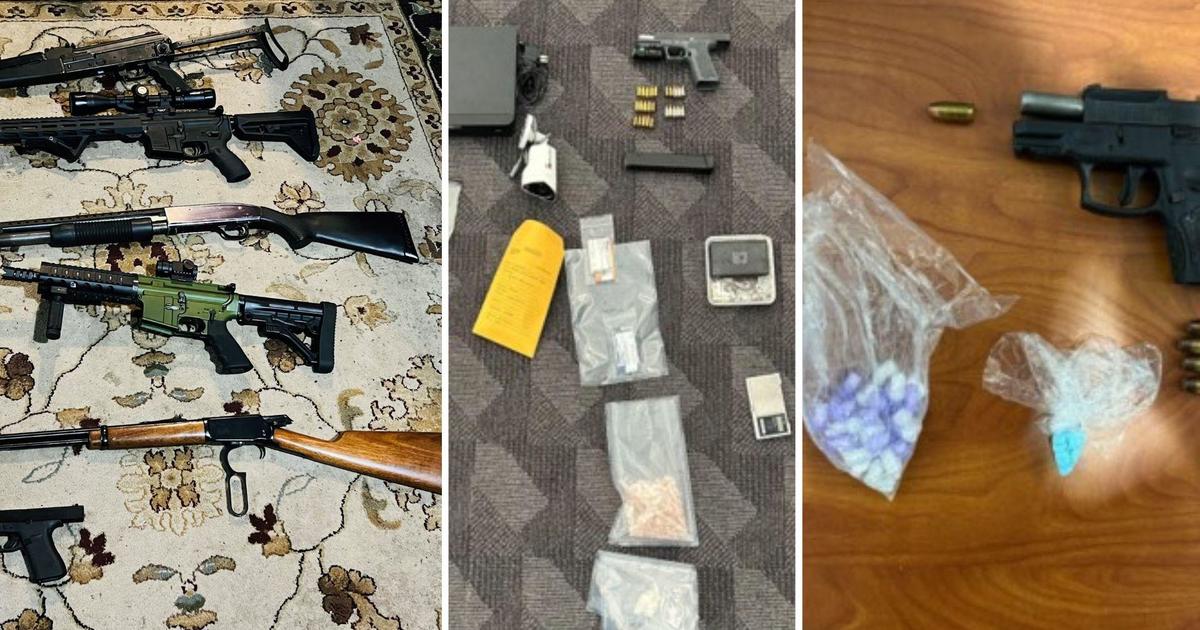Man Suspected Of Stalking, Killing Homeless People Arrested
WASHINGTON (AP) — A man suspected of stalking and shooting homeless people asleep on the streets of New York City and Washington, D.C., was arrested early Tuesday. Police said at least two people were killed and three others wounded in the attacks.
Law enforcement arrested the man in Washington, the Metropolitan Police Department said on Twitter after news of the killings had added new fears to people spending nights on the streets of the two cities and elsewhere.
The man was identified as 30-year-old Gerald Brevard, two law enforcement officials told The Associated Press. Brevard, who lives in the Washington area, has a criminal history that includes an assault arrest, the officials said. He was in custody Tuesday. The officials were not authorized to publicly discuss the investigation and both spoke to the AP on the condition of anonymity.
Police in the two cities earlier released multiple surveillance photographs, including a closeup showing the suspect's face, and urged people who might know him to come forward. A tipster called police with information about his identity, officials said.
D.C. Mayor Muriel Bowser and New York City Mayor Eric Adams credited the swift coordination between the two police departments and the federal Bureau of Alcohol, Tobacco, Firearms and Explosives. ATF agents took Brevard into custody before handing him over to the MPD, according to the ATF's Twitter feed.
"We said that the work to remove this man from our streets was urgent, and our communities responded," Bowser said in a joint statement with Adams on Tuesday. "We know that this experience has been especially scary for our residents experiencing homelessness. Our work continues to end homelessness and ensure all residents have access to safe and affordable housing."
Bowser and Adams held a joint news conference Monday evening to appeal for public assistance in identifying the attacker.
"This man targeted those experiencing homelessness with no regard for life, but this criminal is now off the streets," Adams said Tuesday. "Gun violence against anyone, let alone our most vulnerable populations, is sick, but thanks to the coordination between different levels of law enforcement and the public's help, those experiencing homelessness can breathe a sigh of relief today."
Court records show Brevard was arrested in July 2018 on assault charges and later pleaded guilty to attempted assault with a deadly weapon. He was found mentally incompetent to stand trial in June 2019. Records show Brevard was sent to St. Elizabeths Hospital, a psychiatric facility in the District. A month later, he was deemed competent to stand trial. Soon after, records show, he pleaded guilty and was sentenced to a year in prison. That sentence, however, was suspended.
Investigators also are trying to determine why Brevard was out on the streets around 2:30 a.m., when he was arrested.
Advocates for the homeless found comfort in the arrest but urged officials in both cities, which have significant populations of people without permanent shelter, to provide more assistance.
"The urgency of helping people move in off the streets must remain, because this is only the latest example of the risks faced by people without housing," said Jacquelyn Simone, policy director for the Coalition for the Homeless in New York City. "It's not the first time that people have been the victims of violence or even homicides because of their housing status."
Investigators in the two cities began to suspect a link between the shootings on Sunday after a Metropolitan Police Department homicide captain, a former New York City resident, saw surveillance photos that had been released on Saturday night by the New York Police Department while scrolling through social media.
The man in those photos looked similar to the one being sought by the MPD homicide captain's own department.
D.C. Police Chief Robert Contee credited the coordination between the departments for the timely arrest.
The earliest known shooting happened at around 4 a.m. on March 3 in Washington, police said, when a man was wounded in the city's Northeast section. A second man was wounded on March 8, just before 1:30 a.m.
At 3 a.m. the next day, police and firefighters found a dead man inside a burning tent. He initially was thought to have suffered fatal burns, but an autopsy revealed he had died of multiple stab and gunshot wounds.
The killer then traveled north to New York City, police said.
At 4:30 a.m. on Saturday, a 38-year-old man sleeping on the street in Manhattan not far from the entrance to the Holland Tunnel was shot in his right arm as he slept. The victim screamed, and the gunman fled, police said.
About 90 minutes later, the gunman fatally shot another man in SoHo, police said.
"He looked around," Adams said. "He made sure no one was there. And he intentionally took the life of an innocent person."
The man's body was found in his sleeping bag just before 5 p.m. Saturday. He had been shot in the head and neck, said Julie Bolcer, a spokesperson for the New York City medical examiner's office.
The victim had lain in the street for hours before authorities were summoned.
Kess Abraham, who became homeless last month, said he was "pained" to learn of "a guy who lived on the streets who probably was minding his own business getting murdered for no reason."
It could have been "any one of us who's homeless," Abraham said.
The latest attacks were reminiscent of the beating deaths of four homeless men as they slept on the streets in New York's Chinatown in the fall of 2019. Another homeless man, Randy Santos, has pleaded not guilty to murder charges in those attacks.
A year ago, four people were stabbed in New York City, two fatally, by a man who attacked homeless people in the subway system. That accused assailant, who also was homeless, is awaiting trial.
New York City's mayor has been criticized by some anti-poverty advocates for his plan to remove homeless people from the city's subway system by deploying police and mental health workers to keep people from sleeping in trains or stations. Adams, on Monday, defended the policy, saying it was designed to protect both commuters and homeless residents.
"There is nothing dignified," he said, "about allowing people to sleep on subway platforms."
(© Copyright 2022 The Associated Press. All Rights Reserved. This material may not be published, broadcast, rewritten or redistributed.)



